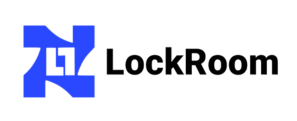
Information is a company’s most precious asset in today’s data-driven business market. Secure and effective document sharing is essential when it comes to sensitive financial data, intellectual property, legal documents, and other private information. Virtual Data Rooms (VDRs) are helpful in this situation. With many features that meet the exacting requirements of contemporary businesses, virtual data rooms have completely transformed how firms manage safe information sharing.
Why Should You Use Virtual Data Room In Secure File Sharing And Data Encryption?
A virtual data room (VDR) provides enhanced data security and access control compared to conventional document management systems. VDRs are utilized by organizations to facilitate secure collaboration on confidential documents related to due diligence, financial transactions, mergers and acquisitions, and other sensitive data. Virtual data rooms offer a platform to ensure that only authorized individuals can access and view confidential documents while enabling collaboration on documents without compromising security. As a result, virtual data rooms are gaining popularity due to their secure, efficient, and cost-effective features, which suitable for secure file sharing.
VDRs offer several advantages over traditional data rooms or file-sharing platforms:
- Compliance and security: A VDR is designed to provide secure and compliant access to data. Consequently, an adequately configured VDR ensures compliance with automated policy enforcement for shared and stored data.
- Sharing data with third parties: One of the key benefits of a VDR is its ability to share files selectively with specific individuals. In secure cloud and file-sharing environments, selectively exposing files to the right people without risking non-compliance or liability can be challenging. A VDR can simplify this process.
- Quick response times: By integrating a VDR into the business process, organizations can facilitate quick and accurate decision-making based on the files within the room. A VDR ensures that all involved parties can swiftly access, comment on, collaborate on, and, on specific platforms, sign files using secure services.
- Cost-effectiveness: Secure file-sharing platforms already incur significant costs. Having one with VDR capabilities helps save money on overhead and administrative expenses due to its simplicity, ease of deployment, and reliability.
- Auditing and logging: A VDR serves as a centralized point for file access, allowing organizations to monitor all file access and management events in the room for auditing purposes. This includes providing immutable forensic chains of evidence or due diligence reports for compliance.
Virtual Data Rooms Vs Cloud Storage: Key Differences
While both virtual data rooms and cloud storage serve as tools for storing and sharing digital information, they possess distinct characteristics. Here is a closer examination:
Security
Virtual data rooms provide a superior level of security compared to cloud storage. This is due to their tailored design for secure file sharing, incorporating features like multi-factor authentication and precise access controls. Cloud storage, conversely, tends to be more vulnerable to hacking and cyber threats. It seems that security features of VDR help a lot in secure file sharing.
Collaboration
Virtual data rooms excel at facilitating collaboration compared to cloud storage. They enable multiple users to access and collaborate on the same documents simultaneously, with the ability to track changes and receive notifications, which maintain the security for secure file sharing process. Cloud storage typically offers basic file-sharing functionality and lacks advanced collaboration features.
Regulatory Compliance
Virtual data rooms are commonly used by businesses in heavily regulated sectors such as finance and healthcare, offering compliance tools like audit logs and document watermarking. Cloud storage generally lacks these compliance features, making it less suitable for secure file sharing in businesses subject to strict regulations.
Customization
Virtual data rooms provide greater customization options than cloud storage. For instance, they can be personalized with company branding and incorporate additional features like Q&A forums and voting polls. Cloud storage typically offers a more standardized solution with limited customization capabilities.
Cost
Virtual data rooms are more costly than cloud storage due to their advanced security, collaboration, and customization features. Cloud storage, on the other hand, is usually more affordable and suitable for basic file-sharing requirements.
In summary, virtual data rooms are ideal for businesses seeking heightened security, collaboration, and regulatory compliance. Cloud storage is a suitable option for basic file-sharing needs but may lack the advanced functionalities certain businesses require.
Who Provides Virtual Data Room Services?
Companies that provide data room services, offering safe online locations for parties to share private documents and data, are known as virtual data room service providers. They also possess numerous capabilities, including user management, audit trails, data encryption and security procedures, document versioning and tracking, and more. Law firms and financial organizations frequently utilize these services for private tasks like due diligence. One such supplier is LockRoom.
What Qualities Should Virtual Data Room Providers Have?
A virtual data room provider can offer various benefits and costs, like any vendor. Not all vendors are equal, and understanding the challenges of selecting one is essential.
Critical capabilities to look for in a virtual data room provider include:
- Security and Compliance: It is crucial that your VDR meets specific compliance requirements for your industry or market, such as encryption protocols for data in motion and at rest (e.g., Cybersecurity Maturity Model Certification [CMMC], FedRAMP, IRAP, etc.).
- Integration: If the VDR is part of a larger platform, it is important to understand how the platform’s features and the VDR service work together. This knowledge can help you choose VDR and other cloud file-sharing services.
- Audit Control: Your VDR provider should offer a straightforward and user-friendly method for compiling and displaying audit logs and reports related to room access, file access, and file changes. Tracking and controlling file access, maintaining detailed records, and generating compliance reports are essential.
- Productivity Applications: Organizations should evaluate how other applications, such as those for contract signing, document versioning, and online editing, interact with the VDR. Each of these applications introduces security and compliance risks.
- Chat or In-Room Communication: A robust VDR solution should include integrated communication features, typically through chat or comment logs.


